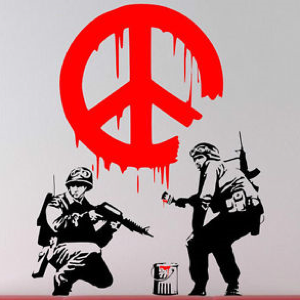Tuesdays & Thursdays 11 am -12:20 pm
Dr. Sigrun Haude
Historians study and teach about the causes, nature, and consequences of warfare in all corners of the world from antiquity to the present. The historical study of war might begin with military history – battles and wars, generals and troops, tactics and strategy – but historians recognize that wars offer broader insights into the workings of societies and that the experience of war and its outcomes are multifarious and often seminal.
To understand how war works, a broad range of methods must be brought into play.
Political history can be used to show how domestic conflicts and constitutional debates have shaped the ways in which wars were fought, and to explore the consequences—territorial, political, institutional—of victory and defeat. Social history might explore the everyday experiences of rank-and-file soldiers, or consider how life changed for the families whom soldiers left behind, the impact of antiwar and resistance movements, or the ways in which ordinary people coped with the horrors of extreme violence. Cultural history might consider war as a subject of epic poetry, triumphant sculpture, or martial music and explain the popular cultures of war, such as new forms of communication (books, posters, films) that are used as propaganda. The history of technology examines not only shifts in weaponry and movement but also other transformations in material culture and communication methods.
